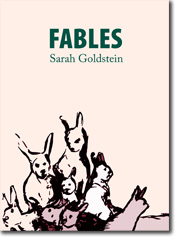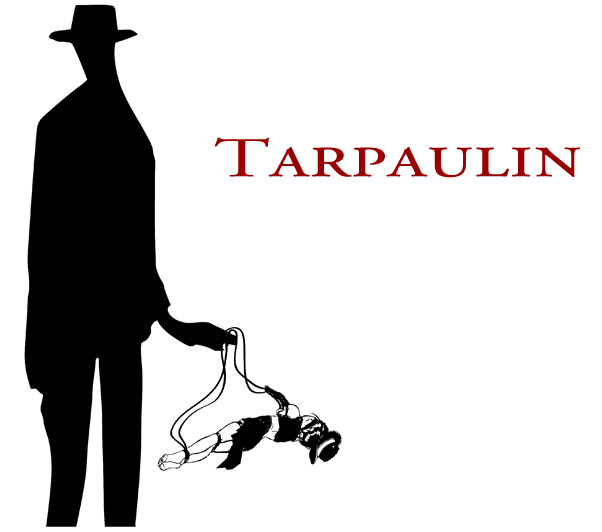Johannes Göransson
Entrance to a colonial pageant in which we all begin to intricate
ISBN: 9780982541654
Fiction / Poetry / Drama
5.5" x 7", 100 pp., pbk. | May 2011
$14 includes shipping in the US
(vs. $16 + $3.99 at Amazon)
Add to Cart or order by
check
Early Reviews of Entrance
“I don't know where else you could contract the plague in these words but by ten TVs at once. On the TVs play:
Salo, the weather channel, 2x Fassbinder (any),
Family Double Dare, ads for ground beef, blurry surgical recordings, porno, porno, Anger (all). An 11th TV right behind you will show you yourself reading to the backside of your head. You'll need a machine gun and a body double. You will not feel your disease: as here these words bring such high pleasure: this malaria is fun. It's also fidgety, petrifying, elegantly rash, giddy, stunned. Burroughs and Genet and 'Pac are dead. Long live Göransson.”
—BLAKE BUTLER
“It would take a miracle to perform this pageant. For a start, you would have to reanimate Charlotte Brontë, Adolf Loos, and Ronald Reagan, and you would need an ungodly amount of wax. Most of the action is obscene, and therefore takes place offstage. The actors enter and report on scenes of spectacular violence that go on all the time every day. The audience is part of the spectacle too. We are all transformed into images somewhere in this script. At one point, all of Hollywood appears onstage on the form of dead horses, perhaps because Hollywood film continues to rely on narrative conventions that it exhausted long ago. The entire world also appears, played by a boy who, in a series of rapid costume changes, puts on increasingly pretty dresses.”
—AARON KUNIN
“Voluptuous, turbulent, and focused, inventive and strictly faithful to the performative instability of our queer moment, Johannes Goransson’s new book brings page and stage together in order to put genre (and gender) to a series of on-going tests. Here body and body of work (inextricable) are in a
critical condition: subject to an invasive and relentless interpretation producing excessive, unruly 'truths.' Here the debased coin of feeling is rung hard and the 'Authenticity kitsch' of an easily accepted idea of the poetic is returned for a better metal, mined from a deeper vein. The love child—in this book at least—of Sylvia Plath and Antonin Artaud (if one can assign parentage at the end of an orgy?), Goransson gives us realisms complicated and fast enough to believe in.
Entrance to a colonial pageant in which we all begin to intricate is an immensely important and absolutely thrilling experience.
Read this! 'Something tells me he is the poet of social justice. Peekaboo!'”
—LAURA MULLEN
“A hybrid form somewhere between or among the categories of poetry, prose, essay, theatre production, and instruction manual. . . . There is much in the absolute inability of this production to be realized in physical terms and space which leads us to see a relationship to an Artaudian Theatre of Cruelty being played out. There are masks and intricate costumes aplenty, from the infamous sacks worn by Guantanamo detainees seen in the earlier passage being worn by THE PASSENGER, to the recurring “Pussy” costume fabricated “from Charlotte Bronte’s gauzes”(42). There are dresses made from looted items, prison-style clothes, black and polished bodies, cowboy costumes, skins charred from suicide bombings, heaps of dead horses, birds bursting from bodies, wounds, basketball jerseys on androgynous children, kissing faces and murder victims, exoskeletons, audience members in whiteface, and many more get ups. The costumes sometimes act/exist as characters in and of themselves, and sometimes they are affixed to bodies which are keen on morphing and wrecking any attempt at stability or a false sense of character development. What develops is the spectacle. It is a pile up of sequined things and fleshy things. . . . The audience is often implicated. After all, torture and interrogation is not borne out of individual will and action alone. . . . All aboard.”
—RYAN DOWNEY, HTML GIANT
“This is a terrifying world we have entered, one that might be likened to a frenzied America souped-up with steroids, LSD, and the rhetoric of fear. . . . The culture in which the drama is set is one with a notable amount of xenophobia. The Passenger undergoes a mandatory cerebral operation, assisted by a nurse who perceives this passenger as a threat to children and society as a whole. . . . Göransson’s prose is obsessive, feverish; it feels as if there is simultaneously an overwhelming joy and a keen aversion that animates his descent into the language inhabited by the characters. . . . This pageant is ultimately redemptive—in a world where much is hidden and persecuted, all parties involved are catapulted into a liminal state that requires a confrontation of the concealed/uncanny. Instead of accepting the paternal law as such, we must create our own, while allowing for a multiplicity of laws to flourish and coexist.”
—DREW KREWER, MARS POETICA
About the Author
Johannes Göransson has published three prior books of his own writings—
A New Quarantine Will Take My Place, Dear Ra, Pilot (“Johann the Carousel Horse”)—and several books in translation—including, most recently, With Deer by Aase Berg, Ideals Clearance by Henry Parland and Collobert Orbital by Johan Jönson. He co-edits
Action Books with Joyelle McSweeney, and co-edits the online journal
Action, Yes with John Dermot Woods. He teaches at the University of Notre Dame and writes regularly on the blog
www.montevidayo.com.
Excerpts from Entrance
appear in
Tarpaulin Sky, Tammy, New American Writing, jubilat, Cleaves Journal, Parthenon West and
Columbia Poetry Review.











